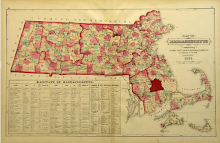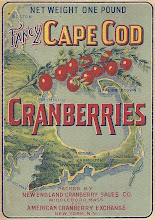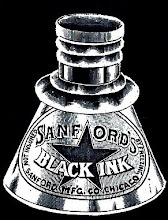Sunday, July 28, 2013
Representatives of the Great Cause: Fletcher L. Clark, Jr.
Fletcher L. Clark, Jr.
Captain, Company H, 36th Infantry, 12th Division, United States Army
1890-1985
Clark was a graduate of Dartmouth College and Harvard Law School and was practicing law in the office of George W. Stetson in Middleborough prior to the war. As early as 1913 Clark attended military preparedness training at Gettysburg, Pennsylvania, and by 1916 he had been commissioned as a second lieutenant in the Army Reserve Corps. Recommended for a first lieutenancy on the outbreak of war, Clark attended the First Officers’ Training Camp at Plattsburg. Temporarily stationed at Camp Devens, he sailed for France in fall 1917, serving with Company M, 103rd Infantry, a federalized National Guard unit from Maine. He served with distinction in France and was cited by Major General Edwards for marked gallantry and meritorious service in the capture of Torcy, Belleau Wood, Givry, Bouresches, Rochet Wood, Hill 190 overlooking Château-Thierry, Etrefilly, Bezult, Epieds, Trugny and the Fère-en-Tardenois Road from July 18-25, 1918 in the Second Battle of the Marne. He arrived back in the United States on August 26, 1918, and was stationed at Fort Dix, New Jersey, where he trained new recruits. Commissioned a captain on September 12, 1918, he was assigned to Company H, 36th Infantry, 12 Division at Camp Devens. He was discharged January 28, 1919. A frequent writer of letters home, Clark was an astute observer and his writings captured not only the destructiveness of war but the resilience of the human spirit, one letter recording the poignancy of French soldiers growing tulips and daffodils at the front amidst its devastation. Writing at Memorial Day, 1918, Clark recorded: “This has been a strange Memorial day here in France. We had services at a place where part of our boys rest. My company was the escort for the ceremonies, which were at the end of a village. Our men lie just beyond the wall of an old French cemetery. As we stood there I heard the power of the Republic extolled and the bravery of those who had paid the price. They spoke of the call that had brought us here to defend the world from despotism and exhorted us to finish the work. After the ceremonies were over two of the boys asked permission to visit the graves as each had a brother buried there. This was the first time they had a chance to visit the place and they might never have another. The French children have had their special graves to look after. That seems to be their outlet for patriotic activity.” Given that Clark would later fill the role of Middleborough Town Moderator for many years, it was perhaps prophetic that his parents sent to him in France a sample ballot, most likely from the 1918 annual town meeting. Clark regarded the ballot as a symbol of representative democracy. “That specimen ballot meant a lot to me; it is such a contrast to the ways of the nation we are trying to down.”
Captain, Company H, 36th Infantry, 12th Division, United States Army
1890-1985
Clark was a graduate of Dartmouth College and Harvard Law School and was practicing law in the office of George W. Stetson in Middleborough prior to the war. As early as 1913 Clark attended military preparedness training at Gettysburg, Pennsylvania, and by 1916 he had been commissioned as a second lieutenant in the Army Reserve Corps. Recommended for a first lieutenancy on the outbreak of war, Clark attended the First Officers’ Training Camp at Plattsburg. Temporarily stationed at Camp Devens, he sailed for France in fall 1917, serving with Company M, 103rd Infantry, a federalized National Guard unit from Maine. He served with distinction in France and was cited by Major General Edwards for marked gallantry and meritorious service in the capture of Torcy, Belleau Wood, Givry, Bouresches, Rochet Wood, Hill 190 overlooking Château-Thierry, Etrefilly, Bezult, Epieds, Trugny and the Fère-en-Tardenois Road from July 18-25, 1918 in the Second Battle of the Marne. He arrived back in the United States on August 26, 1918, and was stationed at Fort Dix, New Jersey, where he trained new recruits. Commissioned a captain on September 12, 1918, he was assigned to Company H, 36th Infantry, 12 Division at Camp Devens. He was discharged January 28, 1919. A frequent writer of letters home, Clark was an astute observer and his writings captured not only the destructiveness of war but the resilience of the human spirit, one letter recording the poignancy of French soldiers growing tulips and daffodils at the front amidst its devastation. Writing at Memorial Day, 1918, Clark recorded: “This has been a strange Memorial day here in France. We had services at a place where part of our boys rest. My company was the escort for the ceremonies, which were at the end of a village. Our men lie just beyond the wall of an old French cemetery. As we stood there I heard the power of the Republic extolled and the bravery of those who had paid the price. They spoke of the call that had brought us here to defend the world from despotism and exhorted us to finish the work. After the ceremonies were over two of the boys asked permission to visit the graves as each had a brother buried there. This was the first time they had a chance to visit the place and they might never have another. The French children have had their special graves to look after. That seems to be their outlet for patriotic activity.” Given that Clark would later fill the role of Middleborough Town Moderator for many years, it was perhaps prophetic that his parents sent to him in France a sample ballot, most likely from the 1918 annual town meeting. Clark regarded the ballot as a symbol of representative democracy. “That specimen ballot meant a lot to me; it is such a contrast to the ways of the nation we are trying to down.”
Subscribe to:
Post Comments (Atom)























+of+Smoky+Mountains+018.jpg)
0 comments:
Post a Comment